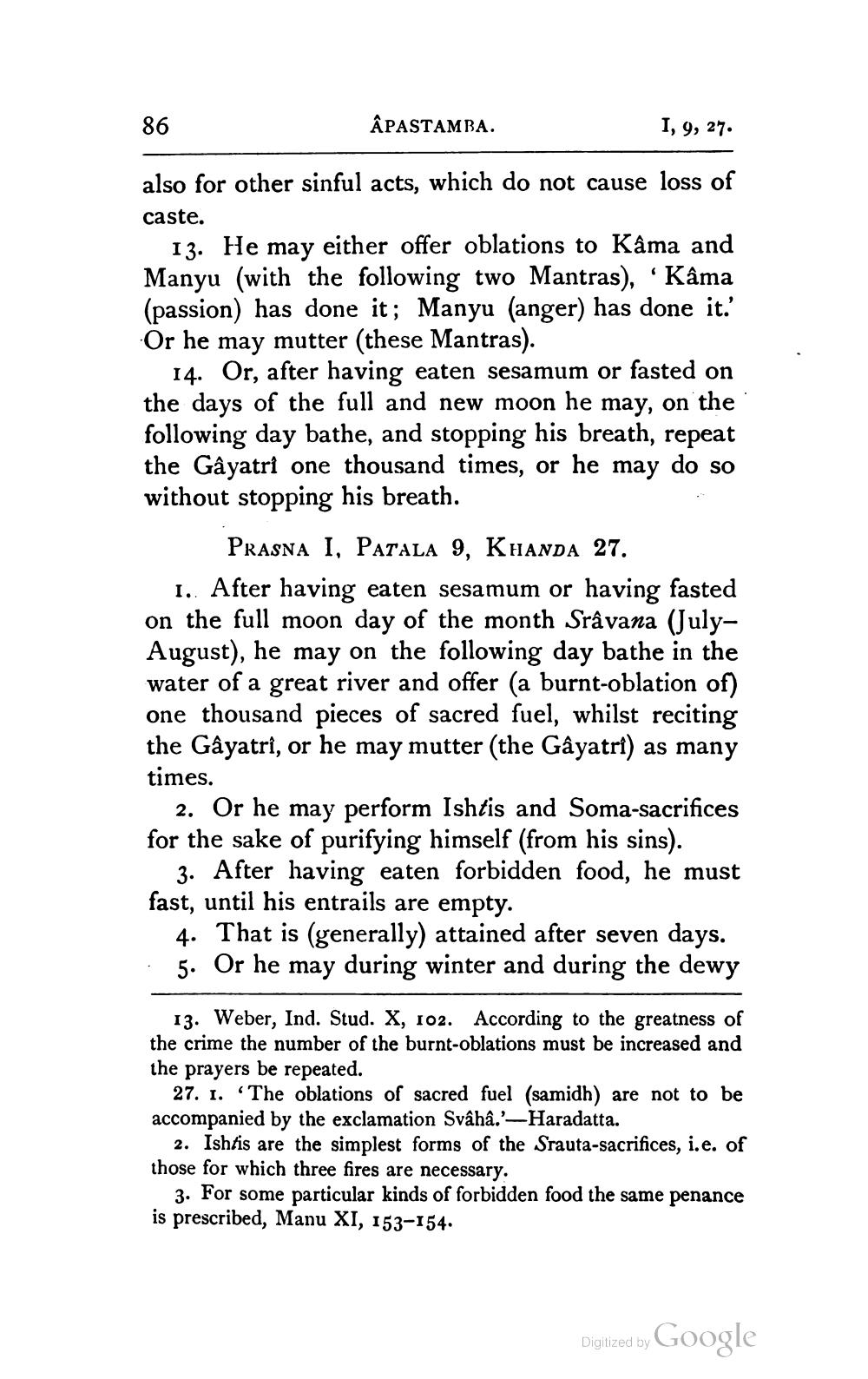________________
86
ÂPASTAMBA.
I, 9, 27.
also for other sinful acts, which do not cause loss of caste.
13. He may either offer oblations to Kama and Manyu (with the following two Mantras), `Kâma (passion) has done it; Manyu (anger) has done it.' Or he may mutter (these Mantras).
14. Or, after having eaten sesamum or fasted on the days of the full and new moon he may, on the following day bathe, and stopping his breath, repeat the Gâyatri one thousand times, or he may do so without stopping his breath.
Prasna I, Patala 9, Kuanda 27. 1. After having eaten sesamum or having fasted on the full moon day of the month Srâvana (JulyAugust), he may on the following day bathe in the water of a great river and offer (a burnt-oblation of) one thousand pieces of sacred fuel, whilst reciting the Gâyatri, or he may mutter (the Gâyatri) as many times.
2. Or he may perform Ishtis and Soma-sacrifices for the sake of purifying himself (from his sins).
3. After having eaten forbidden food, he must fast, until his entrails are empty.
4. That is (generally) attained after seven days. • 5. Or he may during winter and during the dewy
13. Weber, Ind. Stud. X, 102. According to the greatness of the crime the number of the burnt-oblations must be increased and the prayers be repeated.
27. 1. “The oblations of sacred fuel (samidh) are not to be accompanied by the exclamation Svâhâ.'-Haradatta.
2. Ishtis are the simplest forms of the Srauta-sacrifices, i.e. of those for which three fires are necessary.
3. For some particular kinds of forbidden food the same penance is prescribed, Manu XI, 153-154.
Digjized by Google




